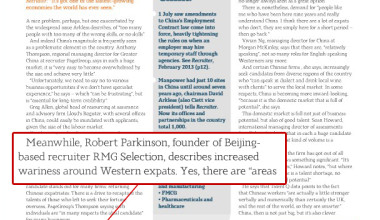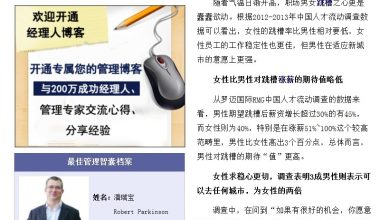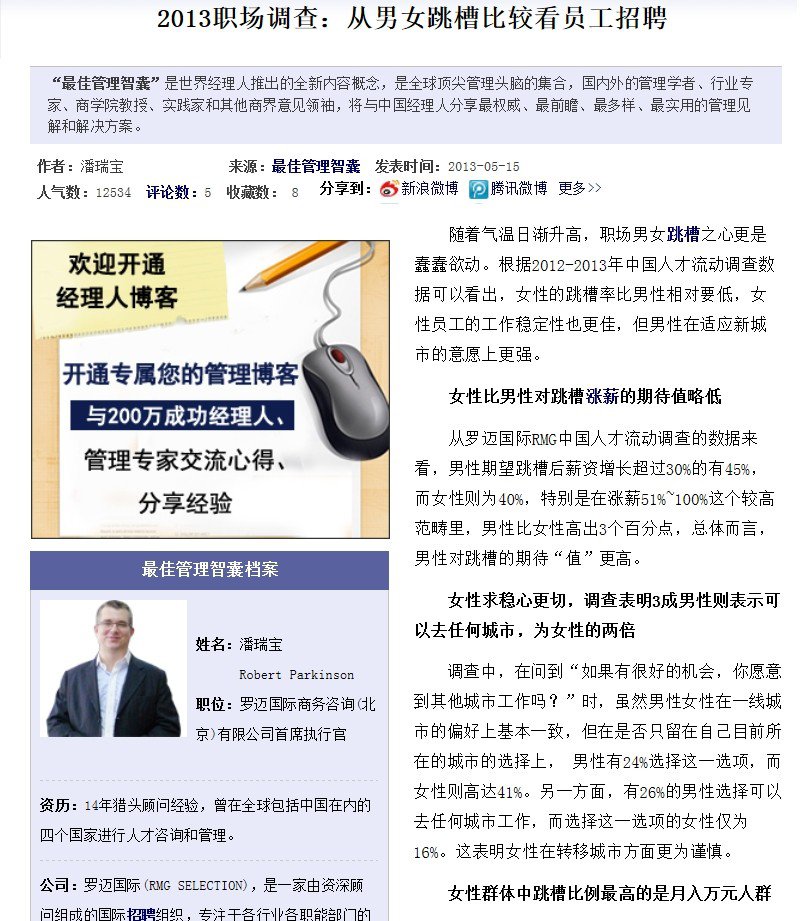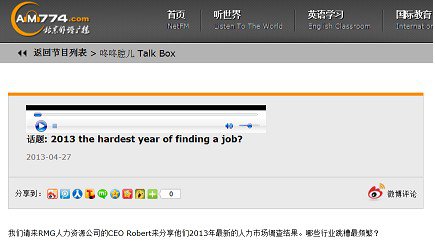
Recruiting in China can seem like looking for a needle in a haystack but despite the challenges, the market is full of potential talent
“China’s got a huge problem,” David Arkless, the vice president of the International Confederation of Private Employment Agencies (Ciett), tells
Recruiter: “It’s got one of the fastest-growing economies the world has ever seen.”
A nice problem, perhaps, but one exacerbated by the widespread issue Arkless describes, of “too many people with too many of the wrong skills, or no skills”.
And indeed China’s magnitude is frequently seen as a problematic element in the country. Anthony Thompson, regional managing director for Greater China at recruiter PageGroup, says in such a huge market, it is “very easy to become overwhelmed by the size and achieve very little”.
“Unfortunately, we need to say no to various business opportunities if we don’t have specialist experience,” he says – which “can be frustrating”, but is “essential for long-term credibility”.
Greg Allen, global head of resourcing at assurance and advisory firm Lloyd’s Register, with several offices in China, could easily be inundated with applicants, given the size of the labour market.
You don’t want that, he says, any more than you want candidates being put off by thinking that that will happen. “Make the recruitment process too slick, they think ‘well, it’s too easy, and everyone’s going to go for it’,” he says. “You have to make it overtly challenging.”
While recruiting in China seems almost like looking for a needle in a haystack, one type of candidate stands out for many firms: returning Chinese expatriates. There is a drive to recapture the talents of those who left to seek their fortune overseas, PageGroup’s Thompson saying such individuals are “in many respects the ideal candidate” for many businesses.
Meanwhile,
Robert Parkinson, founder of Beijing-based recruiter
RMG Selection, describes increased wariness around Western expats. Yes, there are “areas of the market that you simply cannot find the skills locally, for example leisure and hospitality”, Parkinson says, but parachuting in a Westerner is no longer always seen as a great option.
There is, nonetheless, demand for “people like me who have been here nine years and really understand China. I think there are a lot of expats who don’t, they are simply here for a short period – then go back.”
Vivian Ng, managing director for China at Morgan McKinley, says that there are, “relatively speaking”, not so many roles for English-speaking Westerners any more.
And certain Chinese firms, she says, increasingly seek candidates from diverse regions of the country who “can speak in dialect and drink local wine with clients” to serve the local market. In some respects, China is becoming more inward-looking, “because it is the domestic market that is full of potential”, she says.
This domestic market is full not just of business potential, but also of good talent. Sean Howard, international managing director of assessments firm Talent Q, admits that in such a huge candidate pool, “dealing with that kind of volume is a massive challenge”.
But the information the firm has got out of all those candidates shows something significant. “It’s not massive differences,” Howard notes, “but where people are saying there is a talent shortage, no there’s not, in terms of potential”.
He says that Talent Q data points to the fact that Chinese workers “are actually a little stronger verbally and numerically than certainly the UK, and the rest of the world, so they are smarter”. China, then is not just big, but it’s also clever.
Views of China
1 July saw amendments to China’s Employment Contract law come into force, heavily tightening the rules on when an employer may hire temporary staff through agencies. See Recruiter, February 2013 (p12).
Manpower had just 10 sites in China until around seven years ago, chairman David Arkless (also Ciett vice president) tells Recruiter. Now its offices and partnerships in the country total 1,000.
Areas where PageGroup’s Anthony Thompson says activity is “very high”:
• Retail: especially luxury and e-commerce
• Property and construction
• Technology: both R&D and manufacturing
• FMCG
• Pharmaceuticals and healthcare
Sam Burne James
– Read the original version at: http://www.recruiter.co.uk/analysis/2013/08/global-spotlight-on-china/




 Sometimes you just want to have a break and fulfill your dreams of travelling around the world.
How do you break your news to your boss? “I just want to travel” is not a good resignation excuse.
How about applying for a job when you get back on your trip? How can you convince a company to hire someone who would quit for travelling?
RMG Selection HR expert has the answers for you.
Find out our suggestions on the Men’s Uno Magazine June Volumn. (See the image below)
有时候你想让身体去旅行,有时候你就是想完成环游世界的梦想。但是,你如何告诉你的老板你要辞职去旅行?在你旅行归来之后,又如何面对就业呢?
罗迈国际的职场专家来帮你解答。详细的专业建议已经被刊登到了风度杂志六月刊中。(如图)
Sometimes you just want to have a break and fulfill your dreams of travelling around the world.
How do you break your news to your boss? “I just want to travel” is not a good resignation excuse.
How about applying for a job when you get back on your trip? How can you convince a company to hire someone who would quit for travelling?
RMG Selection HR expert has the answers for you.
Find out our suggestions on the Men’s Uno Magazine June Volumn. (See the image below)
有时候你想让身体去旅行,有时候你就是想完成环游世界的梦想。但是,你如何告诉你的老板你要辞职去旅行?在你旅行归来之后,又如何面对就业呢?
罗迈国际的职场专家来帮你解答。详细的专业建议已经被刊登到了风度杂志六月刊中。(如图)

 What to do with the toughest season for the graduates of 2013? Check out in the talk show of Beijing Radio with CEO of RMG Selection Robert Parkinson as a guest on Wednesday (24th, April). You can listen to the live show on http://t.am774.com/Apps/Live/?s=/Program/programReview/pid/41/cid/29936 or follow us on the news official website https://www.rmgselection.com/news/ to get more information.
What to do with the toughest season for the graduates of 2013? Check out in the talk show of Beijing Radio with CEO of RMG Selection Robert Parkinson as a guest on Wednesday (24th, April). You can listen to the live show on http://t.am774.com/Apps/Live/?s=/Program/programReview/pid/41/cid/29936 or follow us on the news official website https://www.rmgselection.com/news/ to get more information.